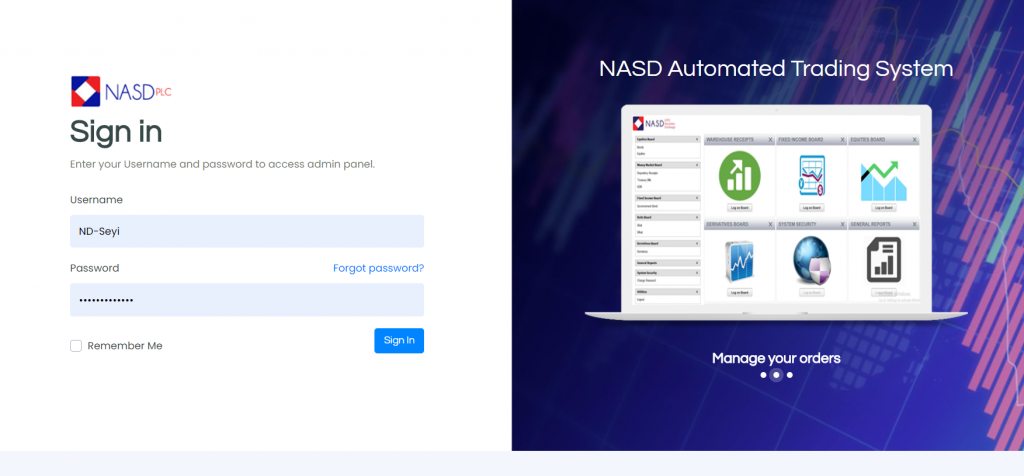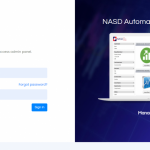Economy
Why Cryptocurrency Trading Has Begun to Feature Prominently in the Nigerian Marketplace

Similar to many African nations, Nigeria is currently in the midst of a digital revolution. More individuals have access to the Internet than ever before and as a result, a host of new financial economic opportunities are beginning to present themselves.
Cryptocurrencies are a perfect example of such a paradigm shift and this marketplace has already attracted both novice and senior investors alike. What are some of the primary benefits associated with this sector and might there be any drawbacks to consider? It pays to look at both sides of the proverbial coin in order to better appreciate where the domestic economy may be headed.
The Notion of a Decentralized Trading Platform
Most cryptocurrency traders think that one of the most appealing aspects of this marketplace involves the use of the blockchain in order to access decentralized investment opportunities. Cryptocurrencies are not governed by any type of central bank and therefore, issues such as inflation and interest rate hikes do not play nearly as important of a role.
Nigerians are also keen to become involved thanks to the decidedly anonymous nature of crypto trading. This has become a practical concern due to increased cybersecurity threats on both a national and international stages. Fiat-backed investments are not nearly as anonymous in nature.
A Market that Knows no Geographical Boundaries
Similar to the Forex sector, cryptocurrency trades can be carried out 24 hours a day and seven days a week. This is ideal for individuals who need to accommodate hectic schedules or who might simply wish to trade after hours and at their personal convenience. Online investment platforms likewise provide around-the-clock access; enabling traders to take advantage of the latest movements at a moment’s notice.
Relatively Low Entry-Level Investments
Although institutional cryptocurrency investors often make news headlines for turning massive profits (and losses on occasion), it is important to mention that this very same marketplace is now open to the general public. Nigerians have become more aware of the potential benefits and registering with a qualified digital platform takes only a matter of minutes.
Furthermore, traders will not need to possess a significant bankroll in order to become involved. The fact that companies are now catering to entry-level positions opens up a world of possibilities even for those who are governed by tight finances.
Intuitive Trading Platforms
Speaking of online trading platforms, Nigerians can leverage a host of professional options. Many of these software packages have been engineered with a user-friendly edge so that little prior experience is required. Some are now offering tutorials and lessons on cryptocurrency basics including:
- Fundamental blockchain principles.
- A closer look at altcoins.
- The top cryptocurrencies at the moment.
- The principle of margin and swing trading.
- How to read technical charts.
It is now clear to see that getting in on the proverbial “ground floor” has never been more of a reality.
Possible Drawbacks
A dose of pragmatism is nonetheless required. Losses can and do occur within the cryptocurrency marketplace. Furthermore, these assets are not currently governed by any central body (such as a government coalition or a central bank). This has caused some individuals to question its inherent levels of transparency.
Another possible issue involves those who choose to invest in tokens with a much smaller market capitalization (altcoins generally fall into this category). Sizeable trades can quickly generate a fair amount of volatility; causing both profits and losses to mount within a relatively short period of time.
A final concern is associated with how future governmental regulations may influence the entire cryptocurrency ecosystem. For example, the United States Securities and Exchange Commission (SEC) is currently engaged in a heated debate regarding whether or not cryptocurrencies should be classified as traditional securities. Some investment analysts feel that tighter governmental regulations may cause larger institutional traders to look elsewhere; a scenario that would negatively impact the value of crypto tokens across the boards.
A Bright (Digital) Future
Notwithstanding the possible concerns outlined above, cryptocurrencies are indeed here to stay. They have now begun to attract a new generation of Nigerian investors that are keen to understand how these unique digital tokens function. Although no one is entirely certain what the future may hold, many feel that this sector could soon rival the Forex marketplace in terms of its overall popularity. As always, only time will tell.
Economy
NASD Exchange in Red for Third Straight Session After 0.15% Fall

By Adedapo Adesanya
For the third straight session, the NASD Over-the-Counter (OTC) Securities Exchange closed bearish, further losing 0.15 per cent on Thursday amid weak demand for unlisted stocks.
During the session, the NASD Unlisted Security Index (NSI) declined by 5.70 points to 3,908.67 points from 3,914.37 points, and the market capitalisation lost N3.41 billion to end N2.338 trillion compared with the N2.342 trillion it ended on Wednesday.
The alternative stock exchange suffered a loss despite having more price gainers than price losers, with five for the former and four for the latter.
Okitipupa Plc lost N10.00 to close at N250.00 per unit versus midweek’s N260.00 per unit, Central Securities Clearing System (CSCS) Plc depreciated by N4.98 to N64.92 per share from N69.90 per share, Industrial and General Insurance (IGI) Plc dropped 4 Kobo to sell at 50 Kobo per unit compared with the previous day’s 54 Kobo per unit, and Acorn Petroleum Plc moderated by 1 Kobo to N1.32 per share from N1.33 per share.
Conversely, 11 Plc gained N13.65 to quote at N276.55 per unit versus the preceding session’s N263.00 per unit, FrieslandCampina Wamco Nigeria Plc appreciated by N6.10 to N84.15 per share from N78.05 per share, Food Concepts Plc expanded by 32 Kobo to N3.60 per unit from N3.28 per unit, Geo-Fluids Plc improved by 30 Kobo to N3.60 per share from N3.30 per share, and First Trust Mortgage Bank Plc increased by 10 Kobo to N1.09 per unit from 99 Kobo per unit.
Yesterday, the volume of transactions surged 2,797.1 per cent to 45.8 million units from 1.6 million units, the value of transactions jumped 315.2 per cent to N208.2 million from N50.1 million, and the number of deals soared 18.2 per cent to 39 deals from 33 deals.
At the close of business, CSCS Plc remained the most active stock by value (year-to-date) with 32.6 million units worth N1.9 billion, followed by Geo-Fluids Plc with 117.4 million units valued at N463.1 million, and Resourcery Plc with 1.05 billion units exchanged for N408.6 million.
Resourcery Plc ended the session as the most traded stock by volume (year-to-date) with 1.05 billion units sold for N408.6 million, trailed by Geo-Fluids Plc with 117.4 million exchanged for N463.1 million, and CSCS Plc with 32.6 million units traded for N1.9 billion.
Economy
Bulls Reaffirm Control of Nigeria’s Stock Exchange With 1.39% Surge

By Dipo Olowookere
Sell-offs in energy stocks could not bring down Nigeria’s stock exchange on Thursday, as the gains recorded by the others sustained the upward momentum.
Yesterday, the Nigerian Exchange (NGX) Limited further appreciated by 1.39 per cent on the back of a strong appetite for domestic equities, which are gaining traction among investors.
The banking index grew by 2.63 per cent, the consumer goods sector appreciated by 054 per cent, the insurance counter improved by 0.50 per cent, and the industrial goods space rose by 0.29 per cent, while the energy industry fell by 0.11 per cent.
When the bourse closed for the day, the All-Share Index (ASI) pointed northwards by 2,645.61 points to settle at 193,073.57 points compared with the previous day’s 190,427.96 points, and the market capitalisation soared by N1.698 trillion to N123.934 trillion from N122.236 trillion.
The trio of Deap Capital, Okomu Oil, and Fortis Global Insurance appreciated by 10.00 per cent each to N6.93, N1,459.70, and 55 Kobo apiece, while the duo of Infinity Trust Insurance and Zichis gained 9.96 per cent each to settle at N14.35, and N15.79, respectively.
On the flip side, the quartet of Tripple G, Multiverse, Secure Electronic Technology, and McNichols lost 10.00 per cent each to quote at N5.40, N25.20, N1.80, and N8.28, respectively, while Meyer declined by 9.80 per cent to N20.70.
Business Post reports that there were 52 appreciating equities and 26 depreciating equities on Thursday, showing a positive market breadth index and strong investor sentiment.
The busiest stock yesterday was Japaul with 80.1 million units valued at N293.3 million, Secure Electronic Technology sold 71.8 million units worth N136.5 million, Mutual Benefits transacted 58.7 million units for N277.6 million, Zenith Bank exchanged 53.2 million units valued at N4.5 billion, and GTCO traded 52.6 million units worth N6.2 billion.
Unlike the preceding session, the activity chart was in red after market participants transacted 898.5 million shares for N38.5 billion in 61,953 deals compared with the 3.7 billion shares worth N61.9 billion traded in 68,693 deals at midweek, implying a decline in the trading volume, value, and number of deals by 75.72 per cent, 37.80 per cent, and 9.81 per cent apiece.
Economy
Naira Fall 0.24% to N1,341/$1 at Official FX Window

By Adedapo Adesanya
The Naira depreciated further against the Dollar in the Nigerian Autonomous Foreign Exchange Market (NAFEX) on Thursday, February 19, by N3.24 or 0.24 per cent to N1,341.35/$1 from the N1,338.11/$1 it was traded a day earlier.
However, it improved its value against the Pound Sterling in the official market during the session by N11.16 to sell for N1,805.86/£1 compared with the previous day’s N1,817.02/£1, and gained N7.83 against the Euro to close at N1,577.29/€1 versus Wednesday’s closing price of N1,585.12/€1.
At the GTBank forex counter, the Naira lost N2 against the greenback to settle at N1,349/$1 compared with the N1,347/$1 it was exchanged at midweek, and at the black market, the exchange rate remained unchanged at N1,370/$1.
The performance of the domestic currency in the spot market was weak yesterday amid prevailing dynamics of supply and demand, as the Central Bank of Nigeria (CBN) maintains its efforts to stabilise the foreign exchange market. The exchange rate remained within the expected range, lifted by strong forex inflows and central bank dollar sales to Bureaux de Change (BDC) operators.
Meanwhile, the cryptocurrency market remained bearish, as there was continued caution in coins amid shaky interest in the digital assets.
On the policy front, there were tentative signs of progress on the digital asset market structure bill. The White House hosted talks between crypto industry representatives and bankers, which yielded incremental movement, though no compromise has yet emerged.
Ripple (XRP) declined by 1.7 per cent to $1.39, Litecoin (LTC) went down by 1.3 per cent to $52.46, Cardano (ADA) dropped 0.8 per cent to trade at $0.2715, Dogecoin (DOGE) retreated by 0.7 per cent to $0.0978, and Ethereum (ETH) contracted by 0.2 per cent to $1,943.30.
On the flip side, Solana (SOL) appreciated by 0.8 per cent to $82.12, Bitcoin improved its value by 0.7 per cent to $66,854.86, and Binance Coin (BNB) chalked up 0.1 per cent to sell for $605.58, while the US Dollar Tether (USDT) and the US Dollar Coin (USDC) closed flat at $1.00 each.
-

 Feature/OPED6 years ago
Feature/OPED6 years agoDavos was Different this year
-
Travel/Tourism10 years ago
Lagos Seals Western Lodge Hotel In Ikorodu
-

 Showbiz3 years ago
Showbiz3 years agoEstranged Lover Releases Videos of Empress Njamah Bathing
-

 Banking8 years ago
Banking8 years agoSort Codes of GTBank Branches in Nigeria
-

 Economy3 years ago
Economy3 years agoSubsidy Removal: CNG at N130 Per Litre Cheaper Than Petrol—IPMAN
-

 Banking3 years ago
Banking3 years agoSort Codes of UBA Branches in Nigeria
-

 Banking3 years ago
Banking3 years agoFirst Bank Announces Planned Downtime
-

 Sports3 years ago
Sports3 years agoHighest Paid Nigerian Footballer – How Much Do Nigerian Footballers Earn






















